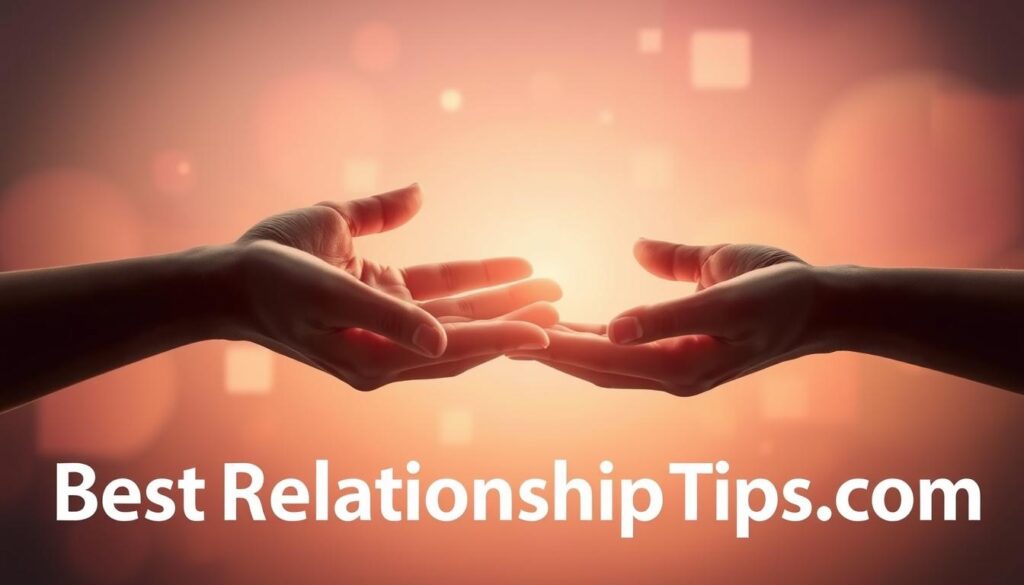
Romantic relationships often challenge our understanding of love, especially when the initial spark of passion begins to fade. Many couples wonder if a relationship can truly endure when romantic love seems to diminish. The complex dynamics of emotional intimacy and commitment reveal that love is far more nuanced than simple intense feelings.
Relationships evolve through different stages, transforming from passionate romantic love to a deeper, more stable connection. While being “in love” typically involves intense emotions and physiological responses, long-term relationships require something more profound. Commitment and emotional intimacy become crucial elements in sustaining a connection beyond initial attraction.
Understanding whether a relationship can last without being in love depends on multiple factors. Couples must navigate their emotional landscape, recognizing that love is not a static experience but a dynamic journey of mutual understanding and growth.
Key Takeaways
- Romantic love changes over time, shifting from intense passion to deeper connection
- Emotional intimacy plays a critical role in relationship sustainability
- Commitment can help maintain relationships during challenging periods
- Long-term relationships require ongoing communication and mutual respect
- Love is a complex experience that extends beyond initial romantic feelings
Understanding Love vs. Being in Love
Love is a complex emotional landscape that goes beyond simple definitions. Scholars define love as an emotional attachment deeply rooted in the quality of relationships. While compatibility and mutual understanding play crucial roles, the experience of love varies significantly between different stages and types of connections.
The distinction between loving someone and being in love reveals fascinating psychological insights. When individuals are in love, they experience an almost magnetic attraction characterized by:
- Intense emotional responses
- Constant thoughts about their partner
- Strong desire for companionship
- Heightened physical and emotional attraction
Defining Love: A Deeper Exploration
Love transcends mere romantic feelings. It encompasses friendship, deep emotional intimacy, and a commitment that withstands challenges. Researchers suggest love can be measured through three key dimensions:
- Passion: Initial intense feelings
- Intimacy: Emotional closeness
- Commitment: Long-term dedication
“Love is not about finding the right person, but creating a right relationship.” – Unknown
Exploring the Emotional Spectrum of Love
Neurologically, love involves a complex interplay of hormones. Dopamine and norepinephrine create feelings of excitement, while oxytocin promotes trust and empathy. These biological mechanisms underscore the profound connection between emotional experience and physiological responses.
As relationships mature, partners transition from being “in love” to a deeper, more stable form of loving. This evolution involves accepting imperfections, building mutual understanding, and creating a partnership based on genuine companionship.
The Different Stages of Love
Love is a complex journey that transforms over time, moving through distinct relationship stages that challenge and deepen our emotional connections. Understanding these stages can help couples build a lasting bond and navigate the intricate landscape of romantic partnerships.
Robert Sternberg’s Triangular Theory of Love reveals that relationships are built on three critical components: intimacy, passion, and commitment. These elements create a dynamic framework for understanding how love evolves.
Infatuation vs. Lasting Love
The initial stage of love happens lightning-fast – research shows it takes just one-fifth of a second to determine attraction. This first phase is characterized by:
- Intense dopamine rush
- Butterflies and excitement
- Idealization of the partner
- Physical and emotional fixation
“Love starts in the brain with a tsunami of brain activity” – Neuroscience Research
Understanding Long-Term Relationship Dynamics
As relationships mature, healthy communication becomes crucial. Couples transition through different love experiences:
- First Love: Typically an all-consuming “puppy love”
- Intense Love: Dramatic highs and emotional challenges
- Unconditional Love: Deep, secure connection
Maintaining excitement requires continuous effort. Successful couples prioritize shared experiences, make date nights non-negotiable, and remain committed to understanding each other’s evolving needs.
Emotional Connection vs. Romantic Love
Relationships thrive on more than just passionate feelings. Emotional intimacy forms the bedrock of lasting connections, transcending the initial sparks of romantic love. Understanding this deeper bond can transform how partners view their relationship’s potential.
A Harvard study reveals that having someone to rely on is the biggest predictor of overall life happiness. This underscores the critical role of emotional connection in building strong, sustainable relationships.
The Importance of Emotional Intimacy
Emotional intimacy goes beyond physical attraction. It involves:
- Deep mutual understanding
- Unconditional trust
- Vulnerability and openness
- Consistent emotional support
“True connection happens when we allow ourselves to be truly seen.” – Brené Brown
Nurturing Bonds Beyond Romantic Love
Commitment and compatibility are not just about shared interests. They’re about creating a safe emotional landscape where both partners can grow. Maslow’s hierarchy of needs emphasizes the fundamental human desire to feel understood and valued.
Strategies to enhance emotional intimacy include:
- Practice active listening
- Share vulnerable moments
- Demonstrate consistent empathy
- Create shared experiences
Interestingly, studies suggest that emotional intimacy becomes increasingly significant in long-term relationships, often surpassing physical intimacy in importance.
Signs Your Relationship May Be Shifted
Relationship changes can be subtle yet profound. Understanding the emotional landscape of your partnership requires careful assessment and honest reflection. Recognizing the shifting dynamics is crucial for maintaining healthy commitment levels and addressing potential challenges.

Identifying relationship changes involves paying attention to key indicators that might signal a transformation in your emotional connection:
- Decreased physical and emotional intimacy
- Reduced desire to spend quality time together
- Feeling more like roommates than romantic partners
- Growing emotional distance
Recognizing When Feelings Have Changed
Statistical research reveals critical insights into relationship dynamics. 78% of individuals in unsatisfying relationships frequently daydream about being single, which can be a significant warning sign of emotional disconnection.
“The most important thing in communication is hearing what isn’t said.” – Peter Drucker
Assessing the Connection and Commitment
When evaluating commitment levels, consider these crucial factors:
- Frequency and quality of communication
- Willingness to resolve conflicts
- Mutual support during challenges
- Shared future vision
Approximately 85% of relationships facing challenges struggle with aligning future goals. This misalignment can significantly impact the relationship’s longevity and emotional health.
Ultimately, relationship changes are natural. The key is to approach them with compassion, open communication, and a genuine desire to understand each other’s evolving needs and emotions.
Can You Build a Solid Foundation Without Romantic Love?
Relationships are complex emotional journeys that extend far beyond traditional romantic narratives. Building a strong relationship foundation requires more than just passionate feelings. Friendship in relationships plays a crucial role in creating lasting connections that withstand life’s challenges.
The Role of Friendship in Relationships
Successful partnerships often emerge from deep mutual understanding and companionship. A relationship rooted in friendship offers unique strengths:
- Genuine emotional support during difficult times
- Comfortable communication without pretense
- Shared interests and compatible life goals
- Long-term resilience beyond initial romantic attraction
Mutual Respect and Understanding
Mutual respect serves as the cornerstone of any healthy relationship. Couples who prioritize understanding each other create a sustainable emotional environment that transcends romantic love’s initial intensity.
“True connection is built on friendship, respect, and genuine care.” – Relationship Expert
Research suggests that couples focusing on friendship and mutual understanding experience greater relationship satisfaction. Developing shared experiences, maintaining open communication, and valuing each other’s perspectives contribute to a robust relationship foundation.
| Relationship Element | Impact on Partnership |
|---|---|
| Friendship | Increases emotional intimacy |
| Mutual Respect | Enhances long-term compatibility |
| Shared Values | Provides relationship stability |
Ultimately, a relationship built on friendship and respect can be more enduring than one driven solely by romantic passion.
Effective Communication in Relationships
Building strong relationship communication requires intentional effort and genuine emotional expression. Successful partnerships thrive when both partners create safe spaces for honest conversations, allowing vulnerability and understanding to flourish.

Effective communication goes beyond simple dialogue. It involves deep listening, empathy, and a willingness to understand your partner’s perspective.
Discussing Your Feelings Openly
Emotional expression plays a crucial role in relationship health. Partners who share their feelings authentically build stronger connections:
- Practice active listening without interrupting
- Use “I” statements to express emotions
- Create regular check-in moments
- Validate each other’s feelings
Strategies for Honest Conversations
Developing robust communication skills requires practice and patience. Consider these evidence-based approaches:
| Strategy | Impact |
|---|---|
| Active Listening | Increases mutual understanding |
| Nonverbal Awareness | Enhances emotional connection |
| Respectful Boundaries | Reduces potential conflicts |
“Communication works for those who work at it.” – John Powell
By prioritizing relationship communication and embracing honest conversations, couples can navigate challenges with greater compassion and understanding.
Maintaining a Healthy Relationship Environment
Creating a thriving relationship requires intentional effort and understanding. Relationship health goes beyond simple romantic gestures, demanding consistent emotional investment from both partners.
Successful partnerships are built on several critical foundations that nurture emotional balance and shared experiences.
Tips for Sustaining Emotional Balance
- Practice active listening during conversations
- Express feelings openly and honestly
- Validate your partner’s emotions
- Maintain individual identities
- Develop emotional empathy
Creating Shared Experiences Together
Relationships flourish when partners intentionally create meaningful moments. Shared experiences strengthen connection and build deeper understanding.
| Activity Type | Relationship Impact |
|---|---|
| Weekly Date Nights | Reinforces romantic connection |
| Learning New Skills | Promotes mutual growth |
| Traveling Together | Creates lasting memories |
| Shared Hobbies | Builds deeper understanding |
“A relationship is not about finding the right person, but creating a right connection.”
Ultimately, maintaining a healthy relationship environment requires continuous commitment, curiosity, and compassion. Partners who prioritize emotional balance and intentional shared experiences can create resilient, meaningful connections.
Seeking Support and Guidance
Navigating relationship challenges can feel overwhelming, but professional relationship counseling offers a powerful pathway to healing and understanding. Relationship resources like BestRelationshipTips.com provide expert guidance for couples experiencing communication barriers, emotional distance, or recurring conflicts.
Professional counseling helps partners unpack complex emotional dynamics, especially when dealing with issues like excessive reassurance-seeking behaviors. By addressing underlying fears of abandonment, low self-esteem, and communication challenges, couples can develop healthier interaction patterns that foster mutual trust and connection.
Benefits of Relationship Counseling
BestRelationshipTips.com recommends seeking professional support when relationship struggles persist. Skilled therapists can help identify root causes of tension, such as anxious attachment styles or unresolved past traumas. Through structured sessions, couples learn strategies to rebuild emotional intimacy, enhance communication, and create sustainable relationship resources for long-term growth.
Finding Resources on BestRelationshipTips.com
Explore comprehensive relationship counseling tools and expert advice through BestRelationshipTips.com. Our platform offers tailored guidance for couples at every stage of their journey, empowering them to transform challenges into opportunities for deeper connection and mutual understanding.
